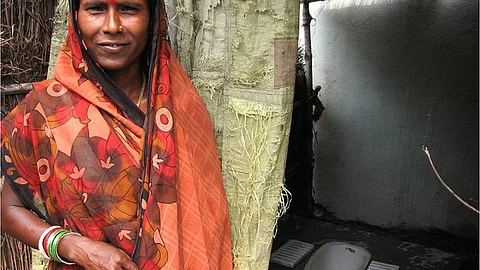
- Topics
- Feature
- Opportunities & Events
- Data
- Hindi Portal
- Topics
- Feature
- Opportunities & Events
- Data
- Hindi Portal

The Ministry of Drinking Water and Sanitation has decided to construct 5.2 million toilets by the end of August in order to meet the target of 12.5 million toilets by 2015. An order has been issued to all the states giving their respective targets for the next two months. The states have also been ordered to maintain the online monitoring system of the their progress on Nirmal Bharat Abhiyan.
According to the United Nations Millenium Development Goals (MDG) Report 2014, India performance has been below the mark to provide improved sanitation. Also, the country has the largest population that defecates in the open with 30% of the world's population defecating in the open living in Bihar, Madhya Pradesh, Uttar Pradesh, Haryana and Rajasthan. Overall, nearly two billion of the world's population achieved access to improved sanitation between 1990 and 2012.
The first national dailogue on the Ganga river, Ganga Manthan, was organised by the National Mission for Clean Ganga and was attended by ministers, MPs, scientists, experts, religious leaders and NGOs. Activists suggested dividing the river into different ecological zones and developing specific strategies for each zone. They also recommended making the revival process of the river transparent and finding ways to take contributions from 40 crore people benefiting from the river.
According to recent studies by WHO and Yale University, India and its cities are among the most polluted. But the Environment Minister has refuted the survey results and said that not all the 20 indicators required to judge pollution are considered in these studies. However, he has mentioned that the government is measuring pollution in 240 cities while also stressing on the use of public transportation and diesel upgradation.
As per the State of Forests Report 2013, the total forest cover in India has increased by 5,871 sq km between 2011 and 2013. West Bengal and Odisha are the two states that have shown the highest increase while the Northeastern states, Andhra Pradesh, Madhya Pradesh, Chhattisgarh and Karnataka have shown a dip in green cover. Plantations are the biggest factor to this increase and only 2% of the increased area falls under the traditional boundaries of forests.
This is a weekly roundup of important news from July 7-12, 2014. Also read last week's policy matters updates.